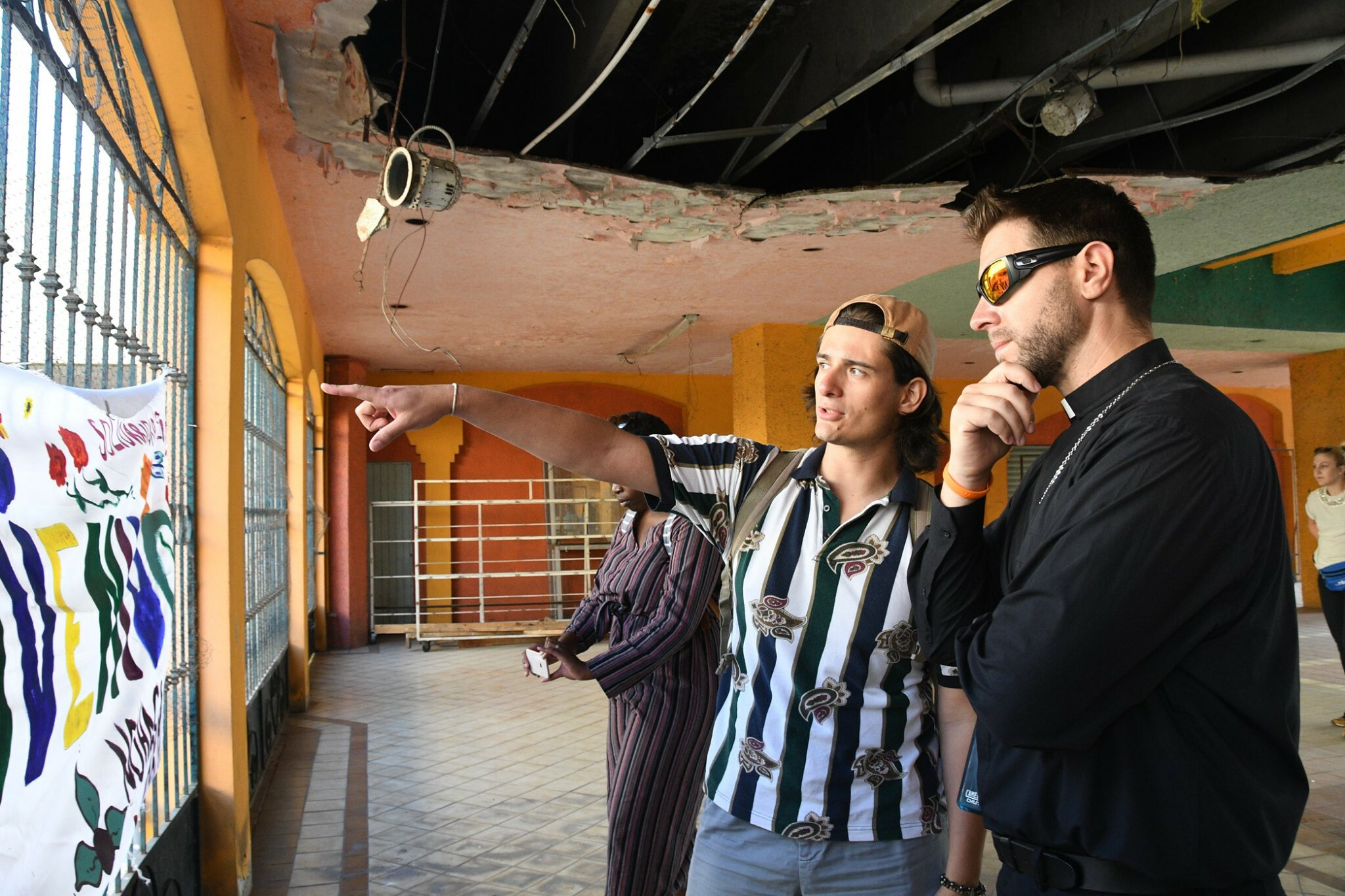
Postcard 5 – Building Hope
Working with migrants has taught Bishop Felipe Ruiz Aguilar humility. It’s also taught him things he never wanted to know.
For example, he said, Mexican mothers putting their teenage daughters on “The Beast,” a train that will take them through Mexico to the US border. The mothers force their daughters to take birth control.
“They know they will be raped on the journey,” Ruiz said. “The problem is they can’t become pregnant, or their journey will be so much harder and maybe they’ll have to come home, back to all they are fleeing.”
As a bishop in the Methodist Church of Mexico, Ruiz Aguilar serves a conference in the northwest of Mexico, which includes Tijuana, which according to the Associated Press, is “a kind of Ellis Island for U.S.-bound migrants,” receiving about 80,000 a year.
“Tijuana has always been, and will always be, a city of migrants,” the bishop said, but the political climate today is different. “We must share the complications and complexities of the migrant experience, but our Methodist Church here is not prepared to take on all the need.”
In April, the church took a step in addressing that need by opening the John 6:35 dining room, which feeds 250 people each Tuesday, Thursday and Saturday. Soon, they hope to provide daily meals.
The kitchen, eating space, and shower facilities were built with funds from the United Methodist Committee on Relief. Volunteers make and serve all the meals.
The conditions in which the migrants live as they wait to be considered for asylum can be horrific. Violence is a problem, so is illness, and human trafficking, said Guillermo Navarrete, who offers pastoral counseling ministries to migrants and served as host to the group from the BWC on the immersion experience.
Navarrete stood next to a sign in a park by the border crossing that held the number 3221 written in magic marker.
After traveling, sometimes 5,000 kilometers (3,106 miles), people are given a number by immigration officials to wait for their asylum claim to be considered. The wait, he said, can take up to eight weeks. They come to the square each day, to find out where they stand in the processing queue.
During that time, they have to find shelter and meals. They are often robbed or taken advantage of. When their number comes up, they are taken by van to San Ysidro for their credible-fear hearings, where they wait in what has become known as “the cold room.” Many get sick. At the hearing, they’re given a court date, often three months in the future, and return to Tijuana to wait, Navarrete said.
Some immigrants wait more than a year before a final legal decision is made on their case. Navarrete is anxious that the world knows about the conditions the migrants in Tijuana are facing. He is especially eager for the church “to learn the whole, real truth,” and then act on it.
“Sometimes people come, and give something; they give, for example, chocolate, and they feel good about themselves,” he said. “They don’t realize the psychological and other profound needs these people here have.”
“The problem of the church is they make implosions – turning inward with programs inside the church. But it’s on the outside of the church that a difference is made. We all need to go out and help the people as Jesus does,” Navarrete said.
“Jesus is the migrant that stokes my vision,” he added. “In the last three years of his ministry, Jesus went only three times to the Temple. Most of his time, he was on the streets with people. This is our call, to create an explosion outside where so many people need us.”
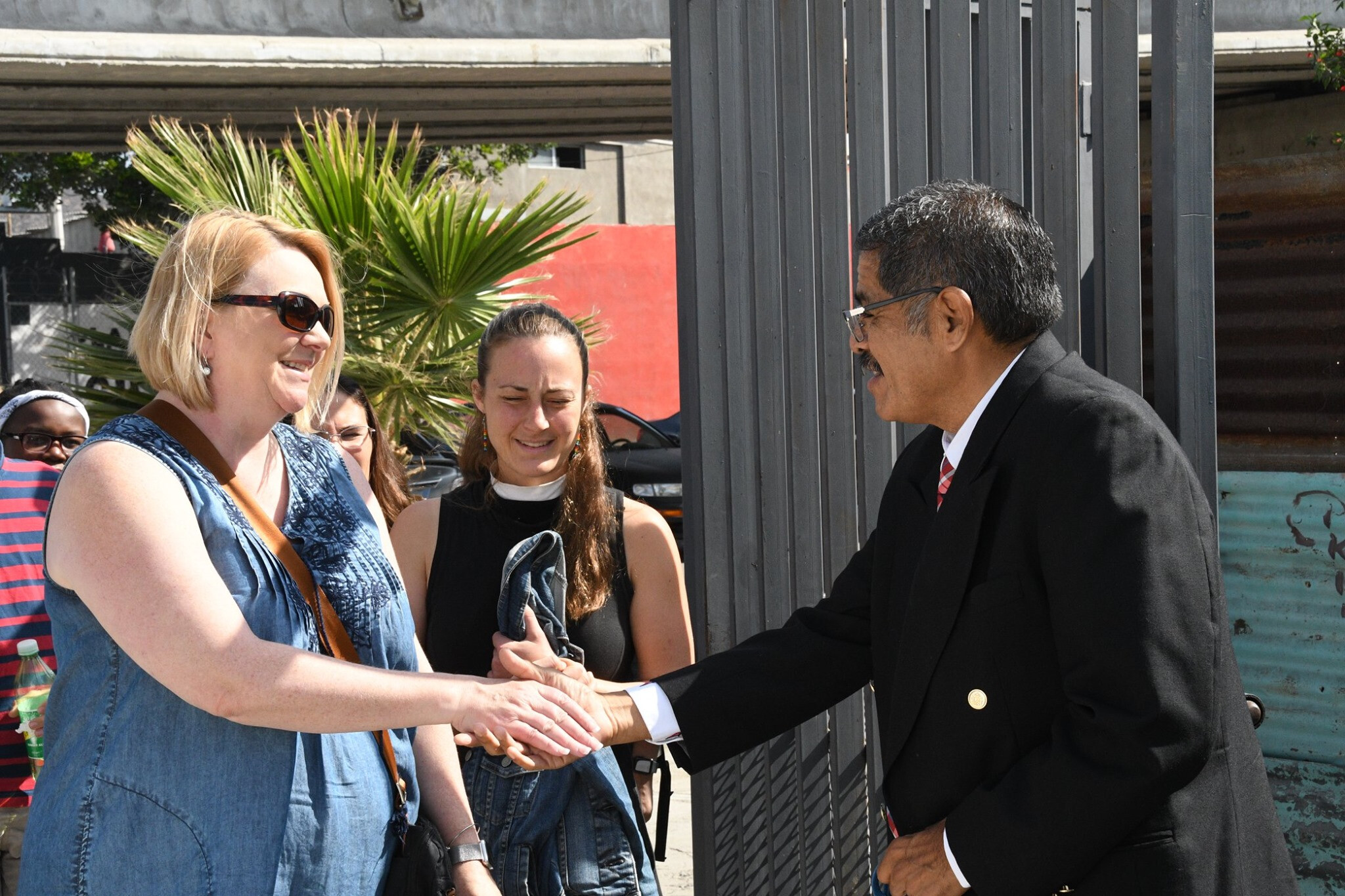
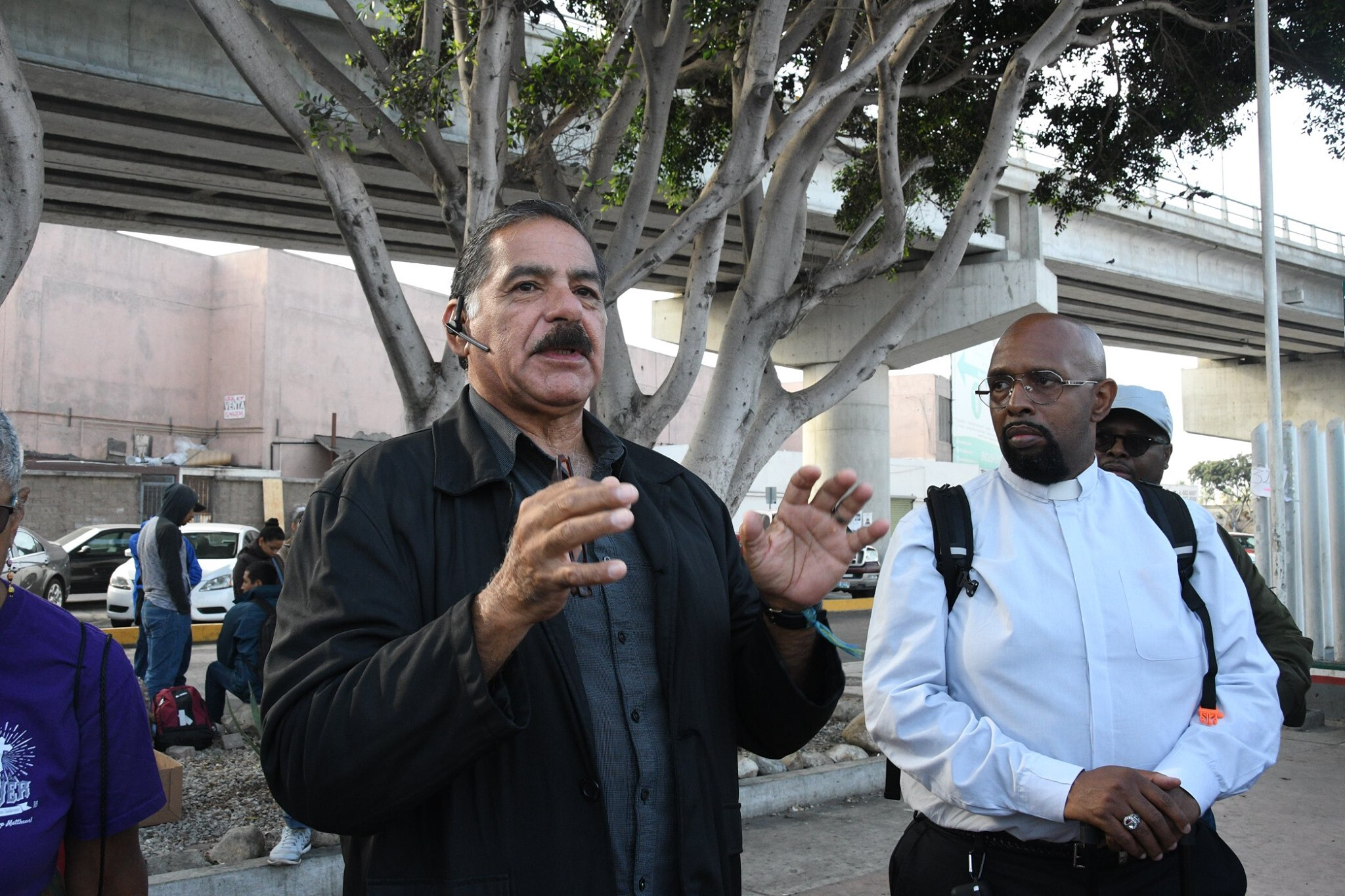
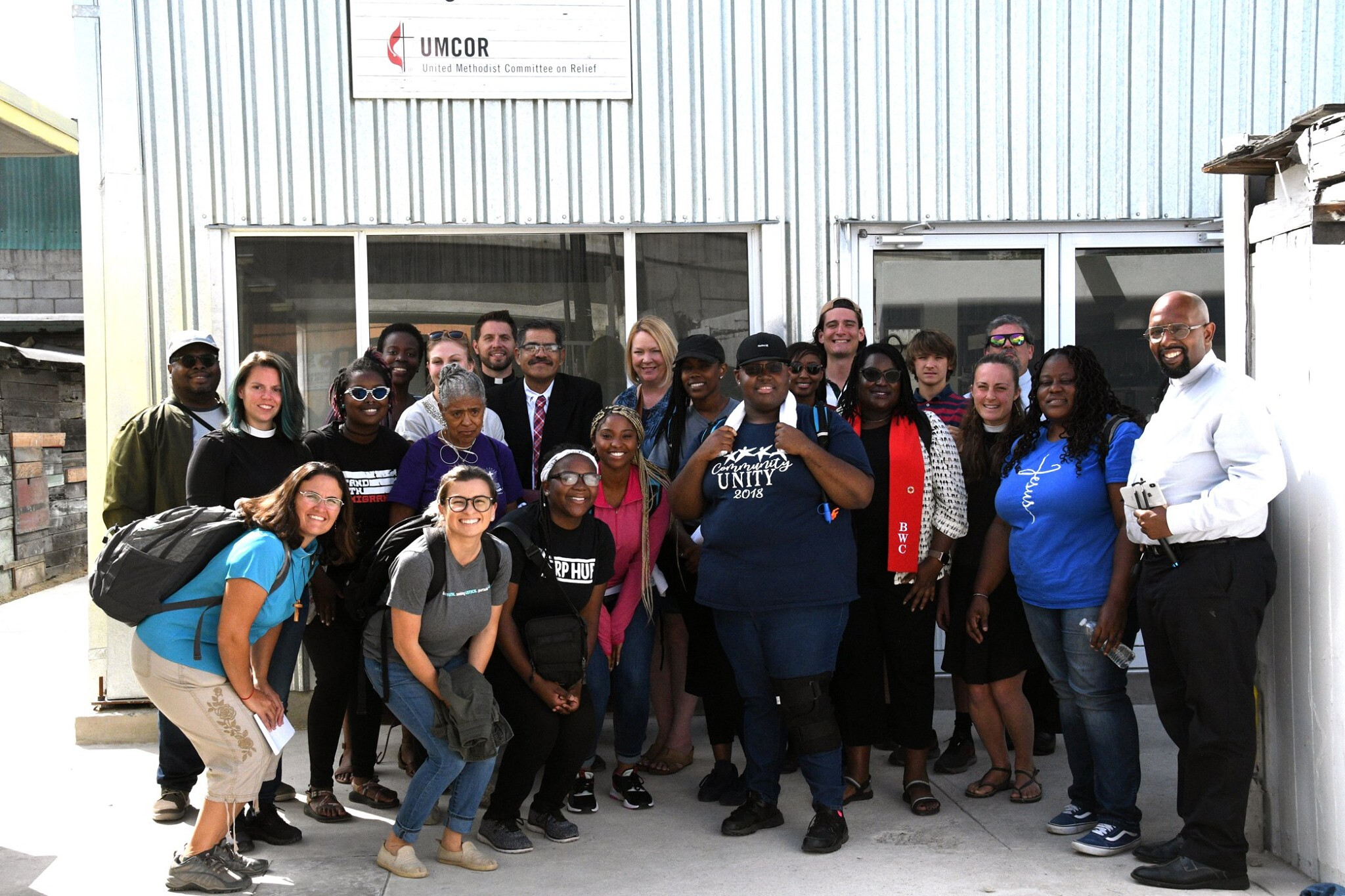
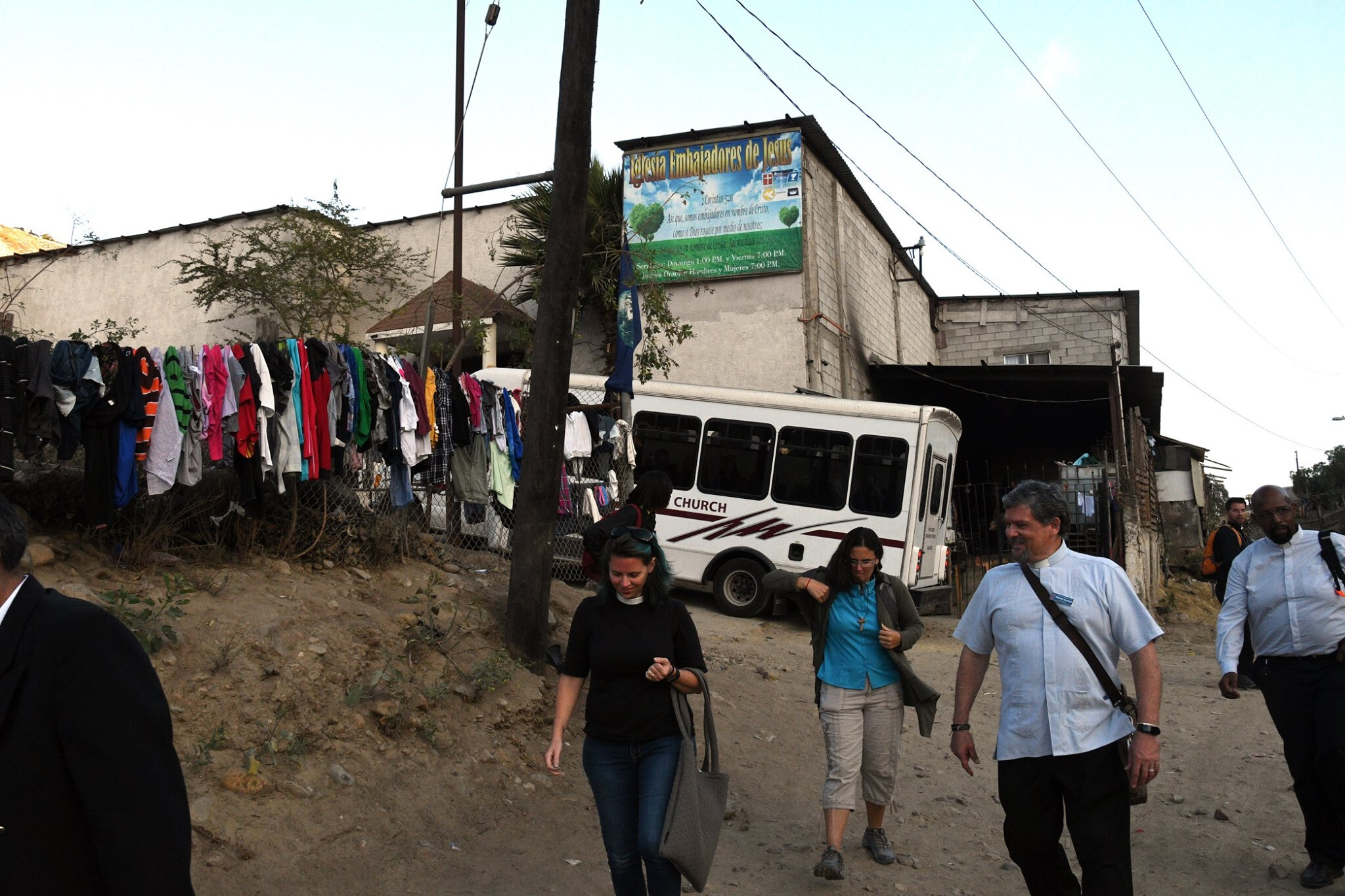
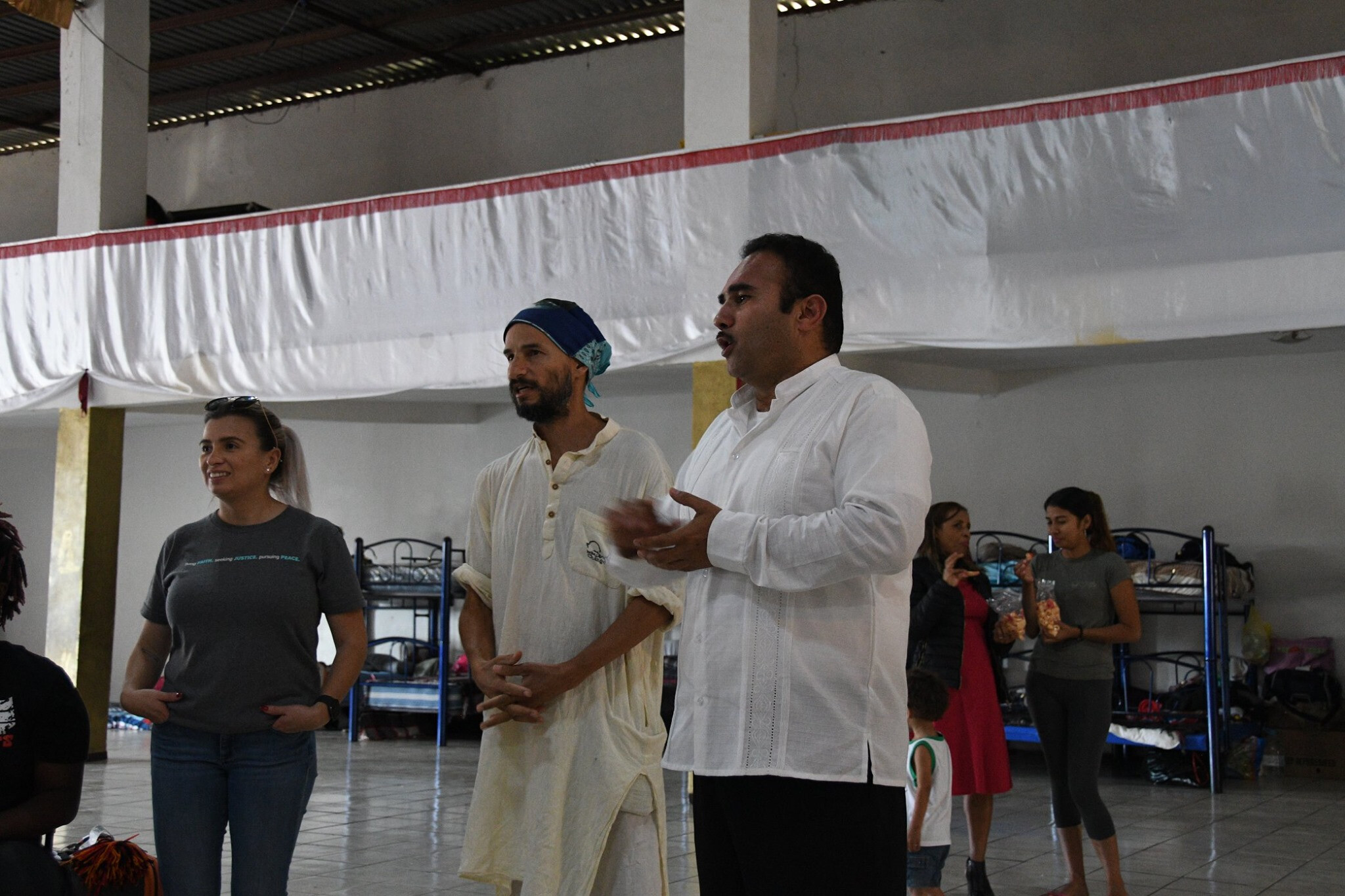
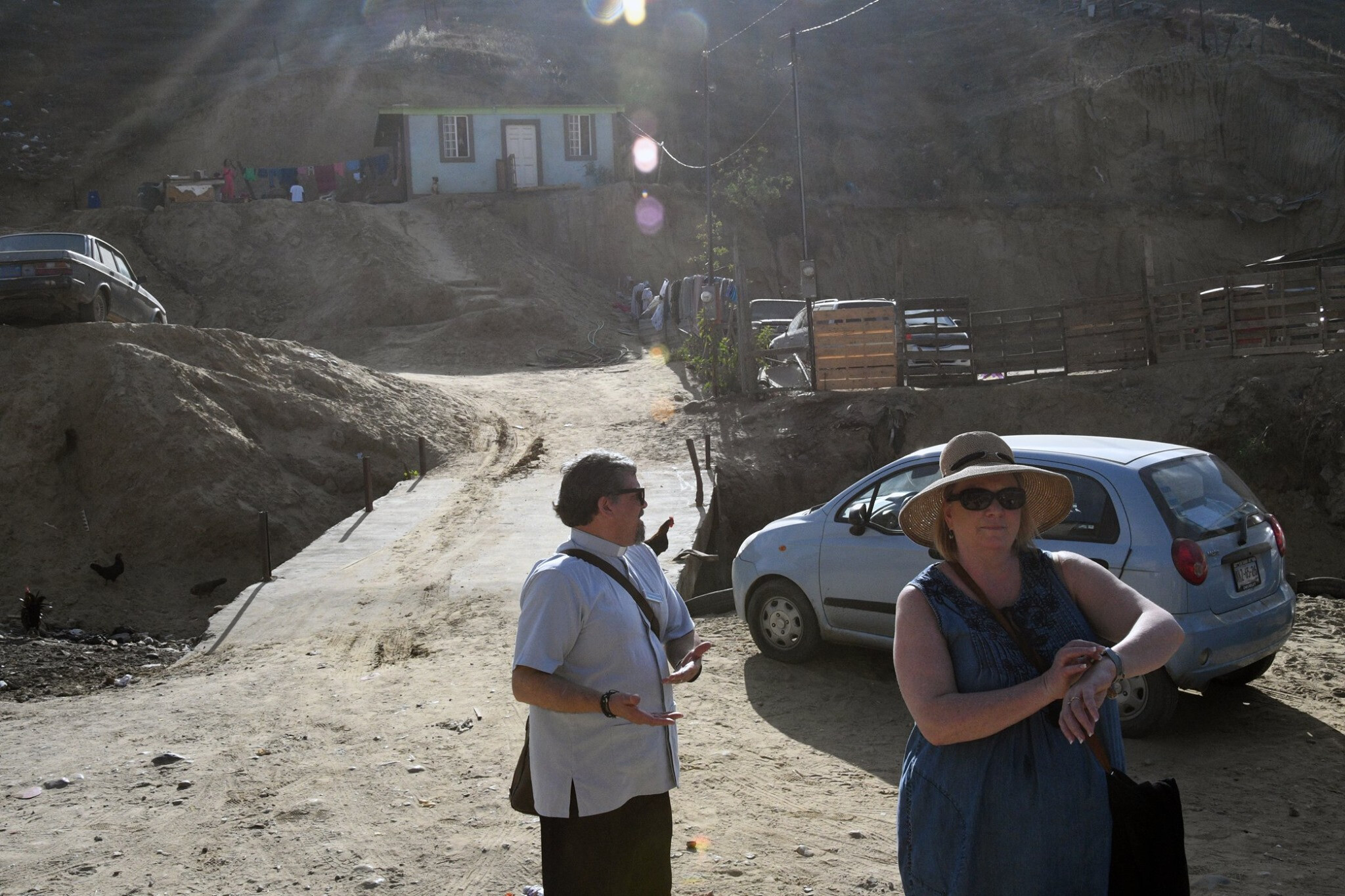
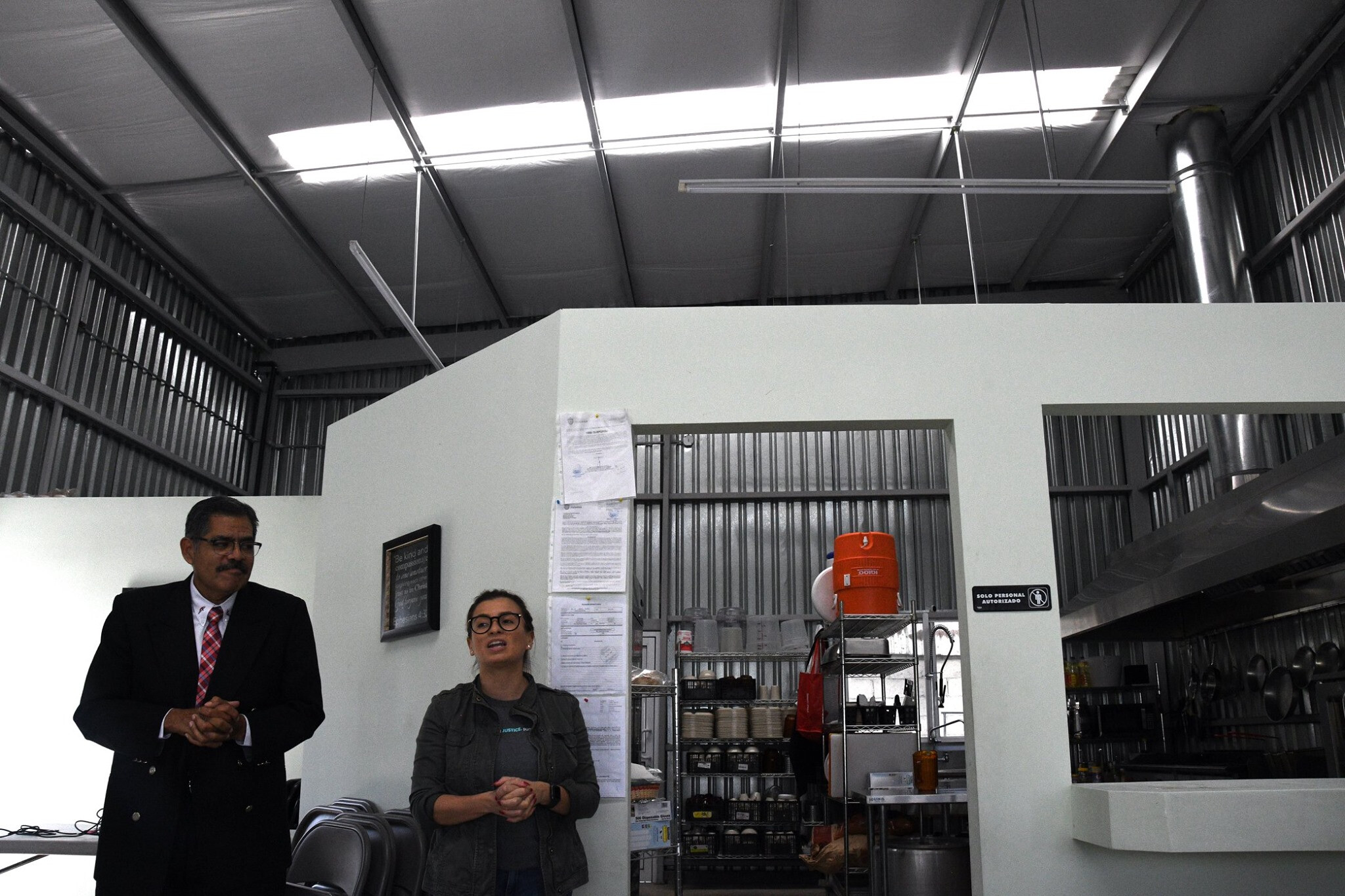
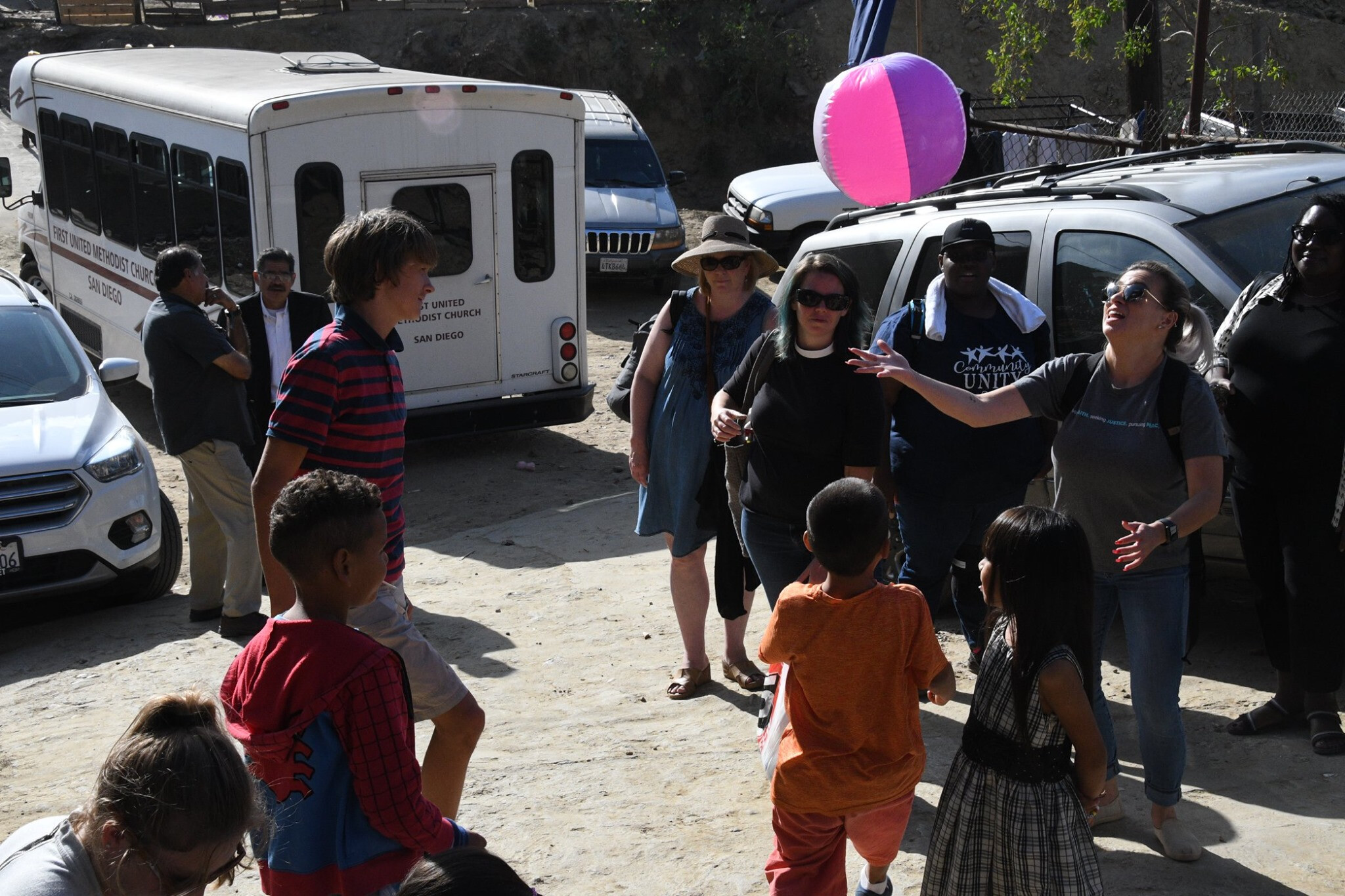
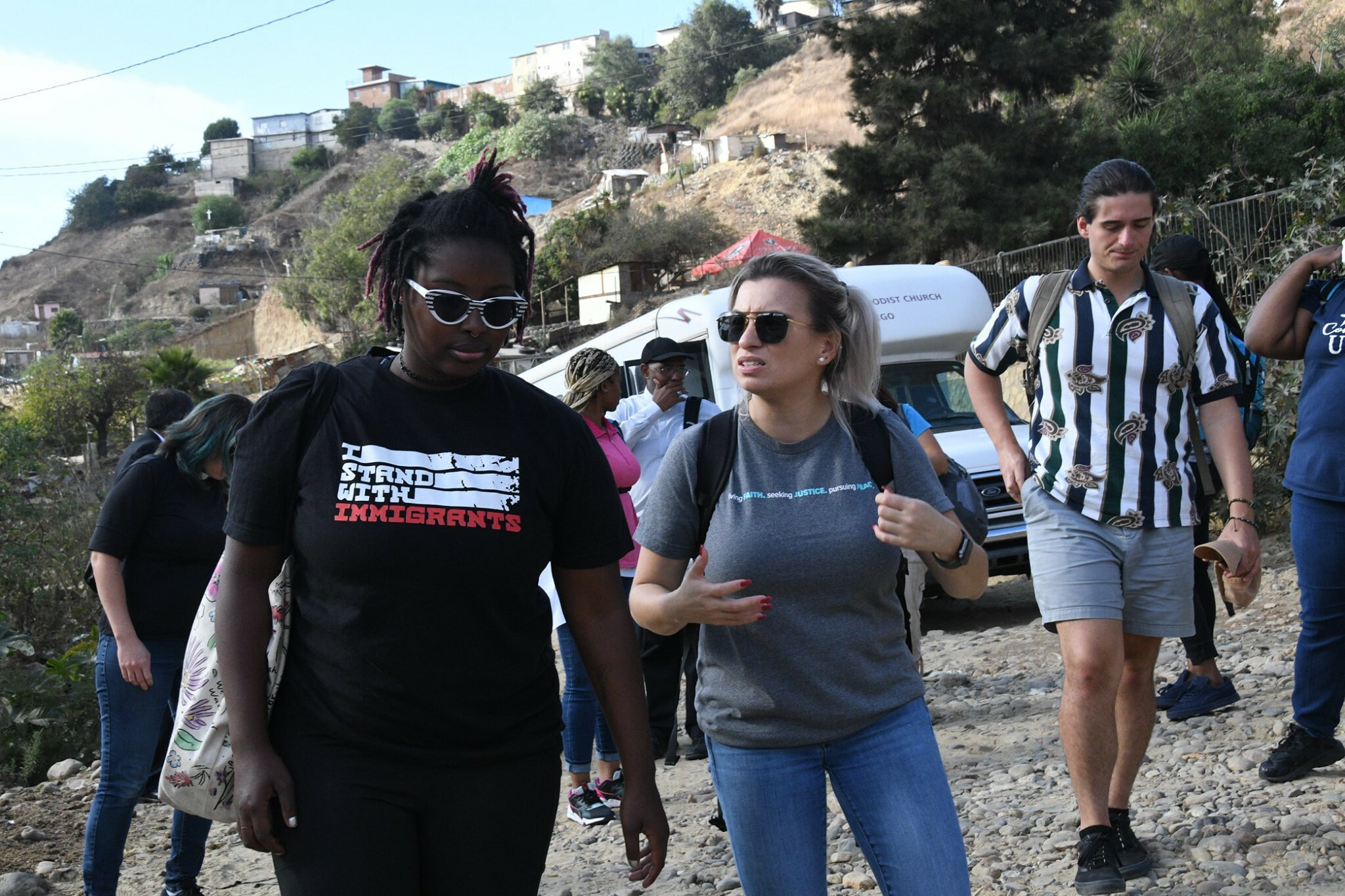
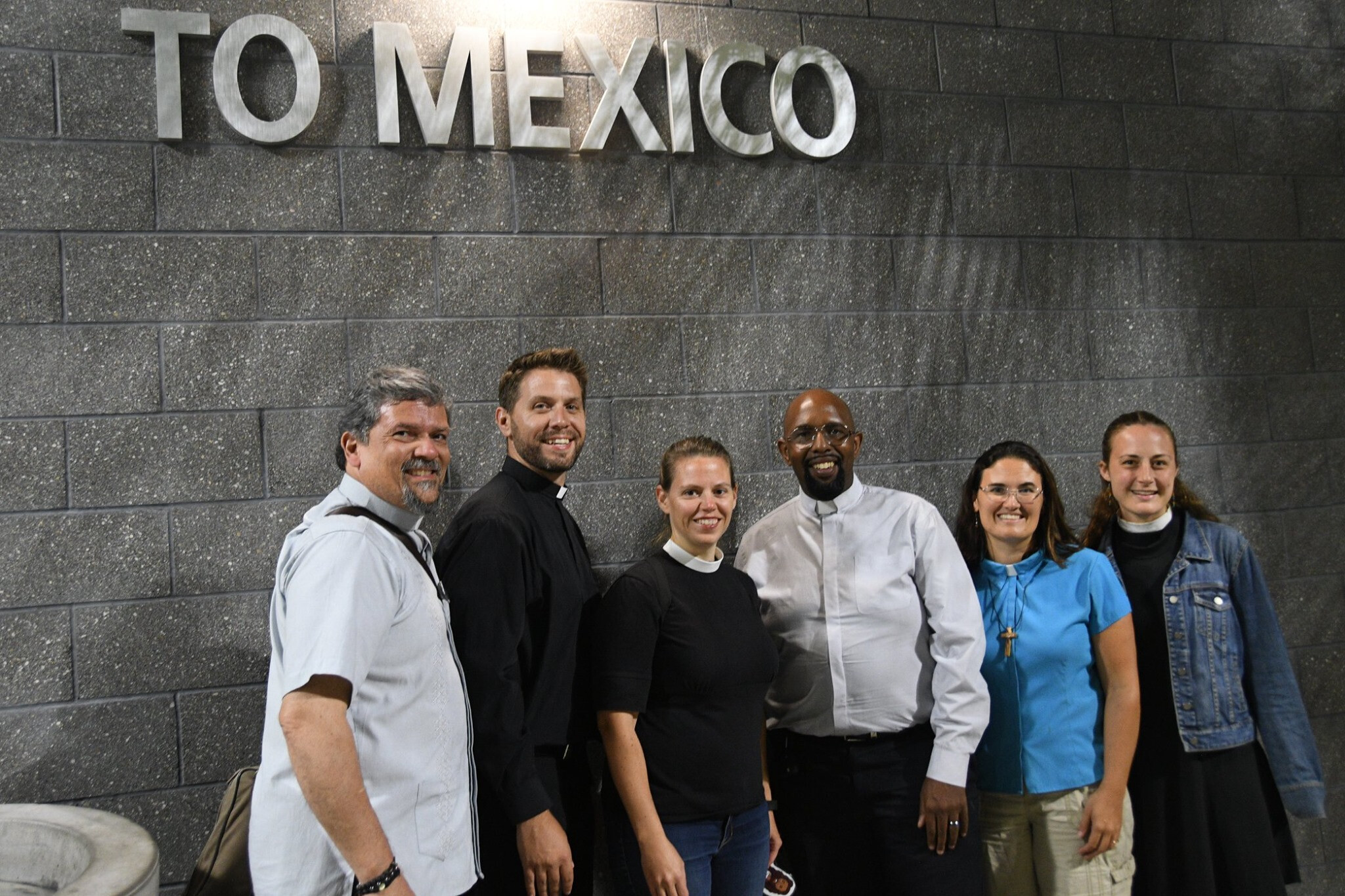
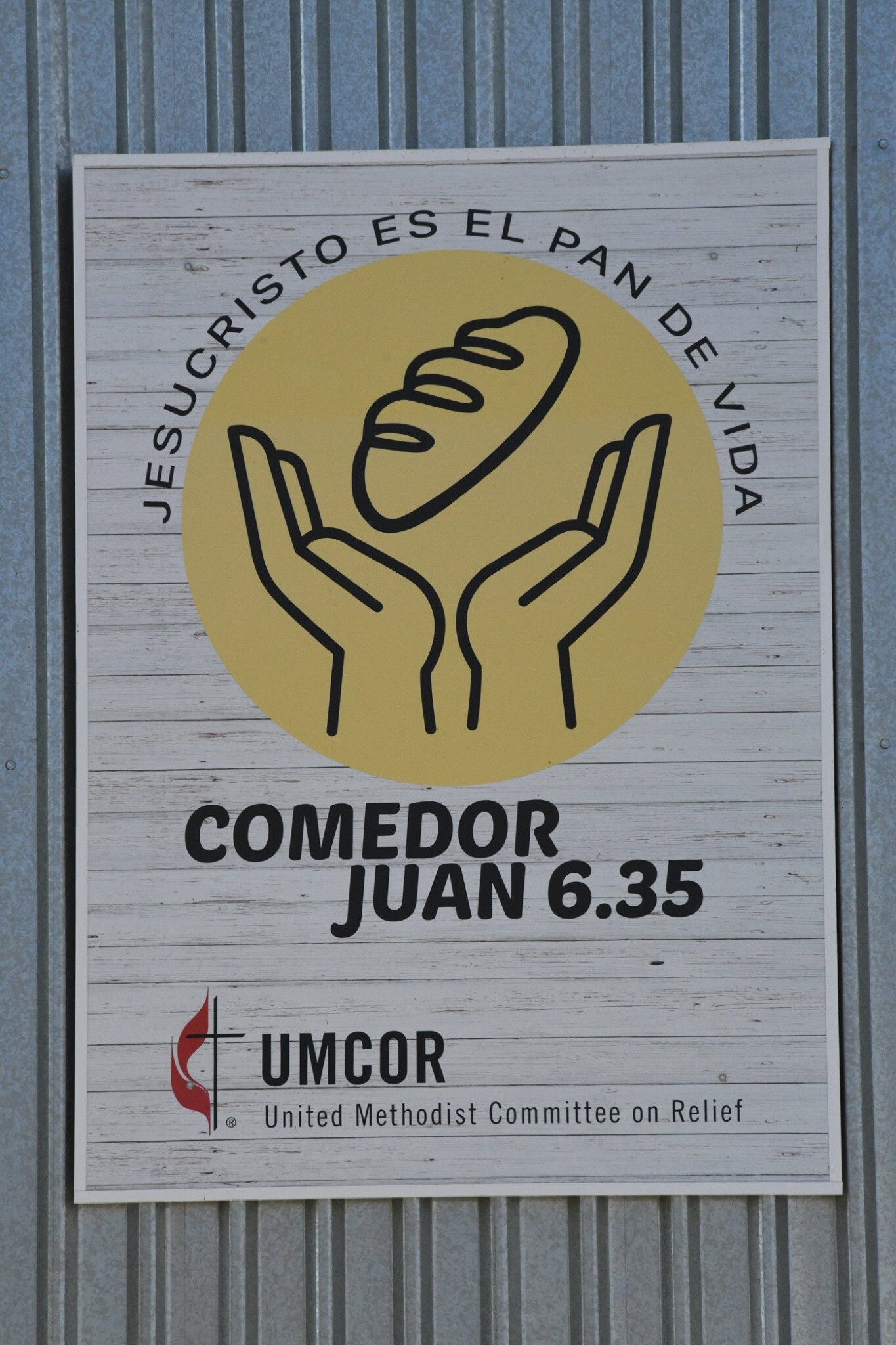
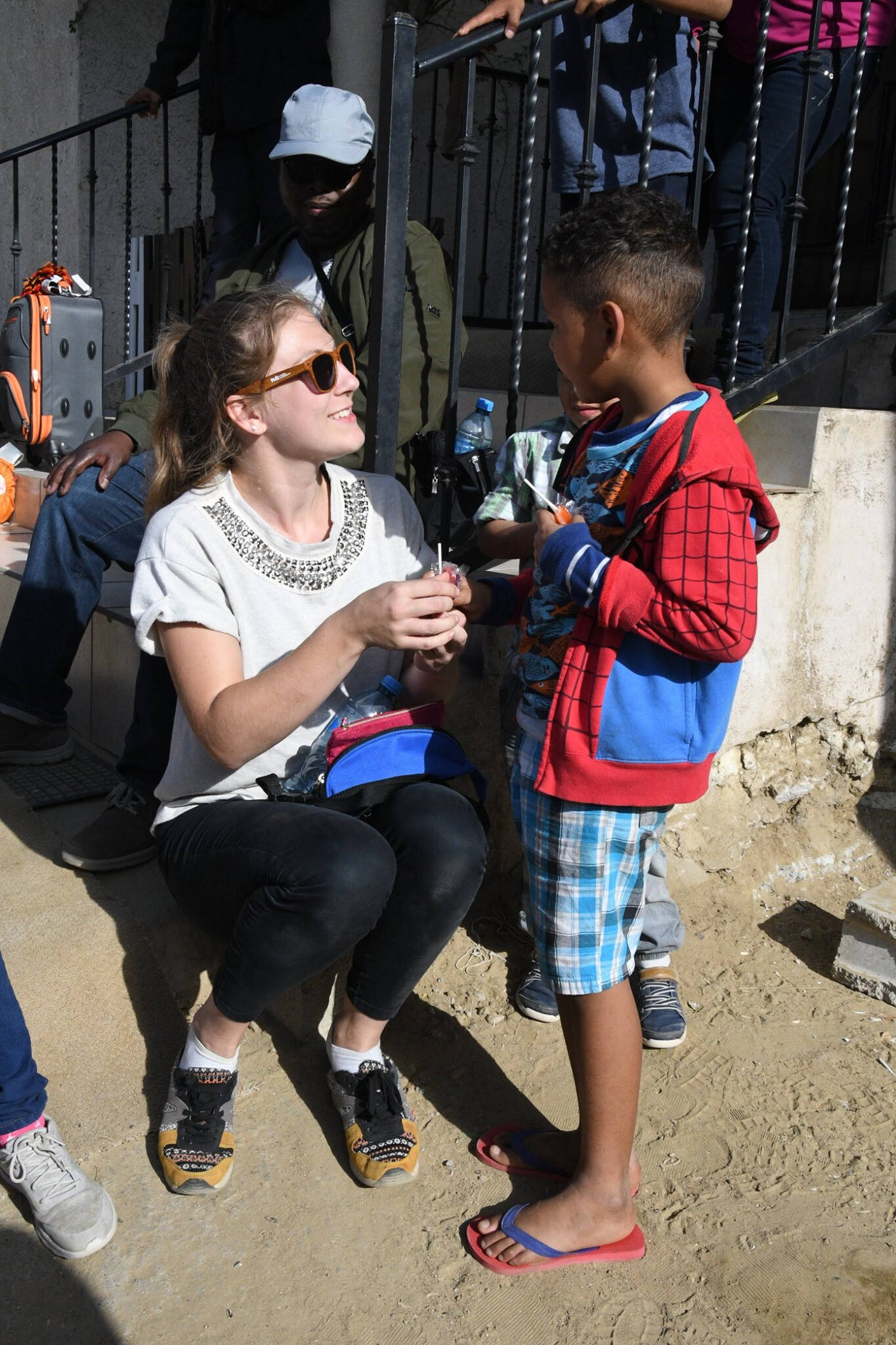

Why is there never consideration to solving the root problem, the conditions in Mexico and other Latin American countries. I hear a lot of talk about how we should be putting pressure on our US government to basically..just let all these people come in. This is not a solution...in fact this will just prolong the problem forever. The praying, activism, and pressuring should be to change these countries into modern societies.
Hassayampa Slim - Thanks for your comment. You bring up a great question - Why are people migrating in the first place? This is a question we wrestled with and learned a little about on our immersion. We visited the Romero Center in San Diego, a community that is doing a lot of work in education about and addressing the needs around root causes of migration. The answers to this question are complicated. I've only just begun to learn more about this (as a result of the assignments for this trip) and I'm no expert. Some of what we learned is that unfortunately our country has contributed to the destabilization of many other countries. We learned some about economic racism and how corporations will specifically target communities of color as places to dump toxic chemicals. These chemicals not only damage the environment but also create generational health issues including an increase in violent behavior. One of the documentaries we watched which I highly recommend is Harvest of Empire.